Samuel Daulton
Differentiable Expected Hypervolume Improvement for Parallel Multi-Objective Bayesian Optimization
Jun 11, 2020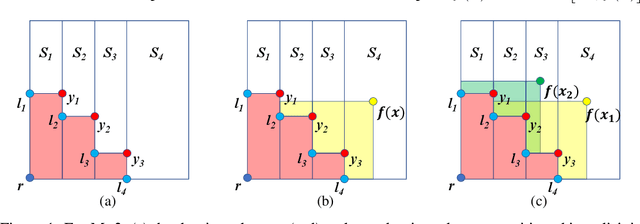
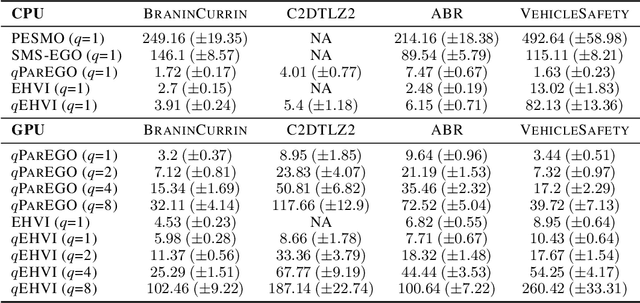
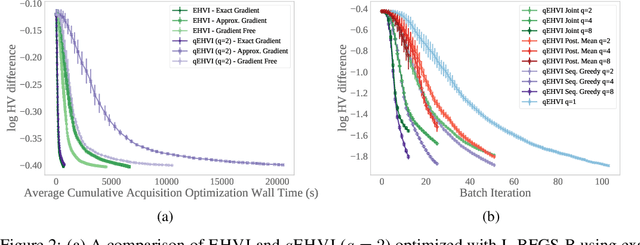

Abstract:In many real-world scenarios, decision makers seek to efficiently optimize multiple competing objectives in a sample-efficient fashion. Multi-objective Bayesian optimization (BO) is a common approach, but many existing acquisition functions do not have known analytic gradients and suffer from high computational overhead. We leverage recent advances in programming models and hardware acceleration for multi-objective BO using Expected Hypervolume Improvement (EHVI)---an algorithm notorious for its high computational complexity. We derive a novel formulation of $q$-Expected Hypervolume Improvement ($q$EHVI), an acquisition function that extends EHVI to the parallel, constrained evaluation setting. $q$EHVI is an exact computation of the joint EHVI of $q$ new candidate points (up to Monte-Carlo (MC) integration error). Whereas previous EHVI formulations rely on gradient-free acquisition optimization or approximated gradients, we compute exact gradients of the MC estimator via auto-differentiation, thereby enabling efficient and effective optimization using first-order and quasi-second-order methods. Lastly, our empirical evaluation demonstrates that $q$EHVI is computationally tractable in many practical scenarios and outperforms state-of-the-art multi-objective BO algorithms at a fraction of their wall time.
Thompson Sampling for Contextual Bandit Problems with Auxiliary Safety Constraints
Nov 02, 2019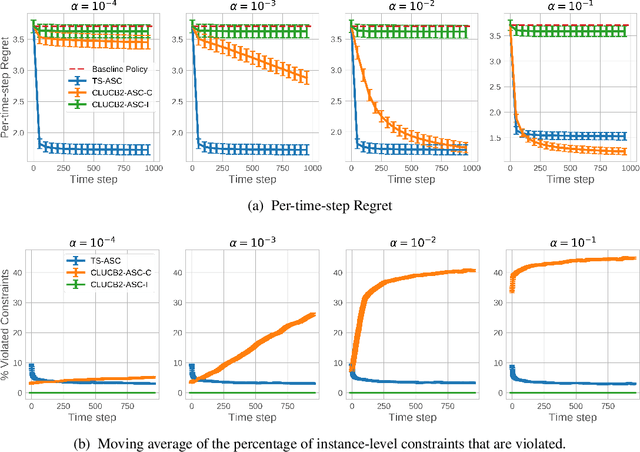
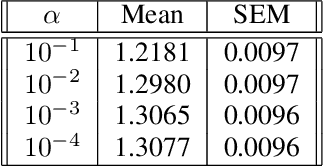
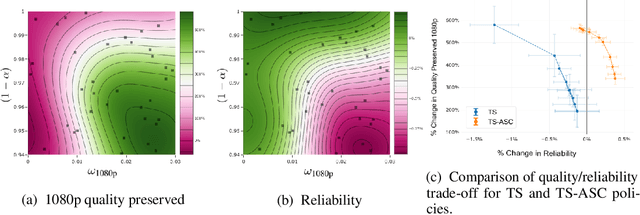
Abstract:Recent advances in contextual bandit optimization and reinforcement learning have garnered interest in applying these methods to real-world sequential decision making problems. Real-world applications frequently have constraints with respect to a currently deployed policy. Many of the existing constraint-aware algorithms consider problems with a single objective (the reward) and a constraint on the reward with respect to a baseline policy. However, many important applications involve multiple competing objectives and auxiliary constraints. In this paper, we propose a novel Thompson sampling algorithm for multi-outcome contextual bandit problems with auxiliary constraints. We empirically evaluate our algorithm on a synthetic problem. Lastly, we apply our method to a real world video transcoding problem and provide a practical way for navigating the trade-off between safety and performance using Bayesian optimization.
BoTorch: Programmable Bayesian Optimization in PyTorch
Oct 14, 2019

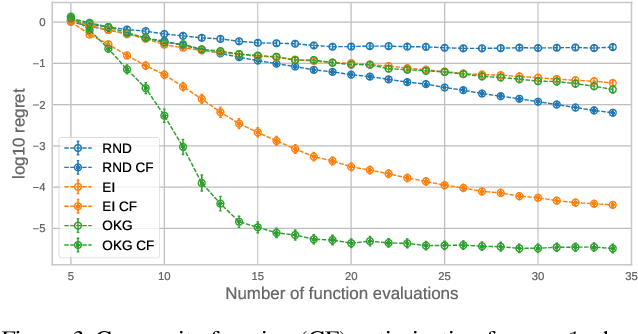
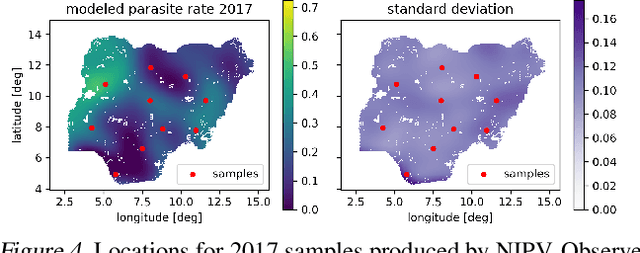
Abstract:Bayesian optimization provides sample-efficient global optimization for a broad range of applications, including automatic machine learning, molecular chemistry, and experimental design. We introduce BoTorch, a modern programming framework for Bayesian optimization. Enabled by Monte-Carlo (MC) acquisition functions and auto-differentiation, BoTorch's modular design facilitates flexible specification and optimization of probabilistic models written in PyTorch, radically simplifying implementation of novel acquisition functions. Our MC approach is made practical by a distinctive algorithmic foundation that leverages fast predictive distributions and hardware acceleration. In experiments, we demonstrate the improved sample efficiency of BoTorch relative to other popular libraries. BoTorch is open source and available at https://github.com/pytorch/botorch.
Robust and Efficient Transfer Learning with Hidden-Parameter Markov Decision Processes
Oct 31, 2017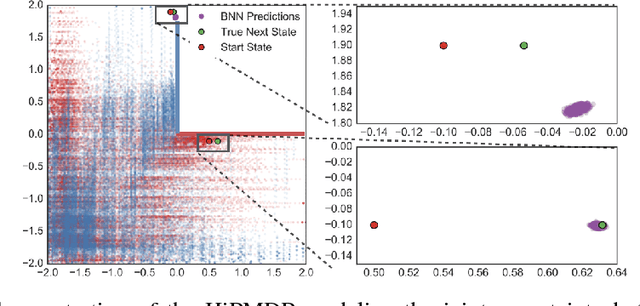
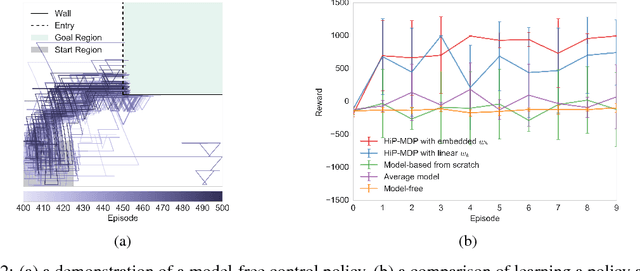
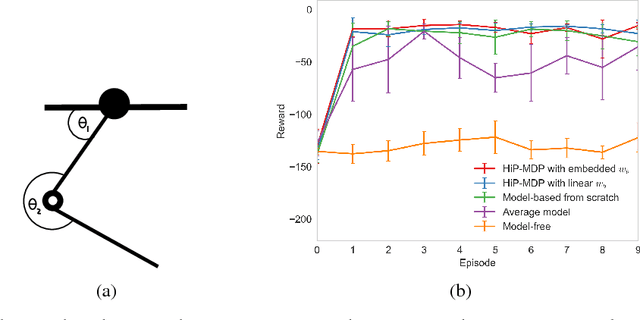
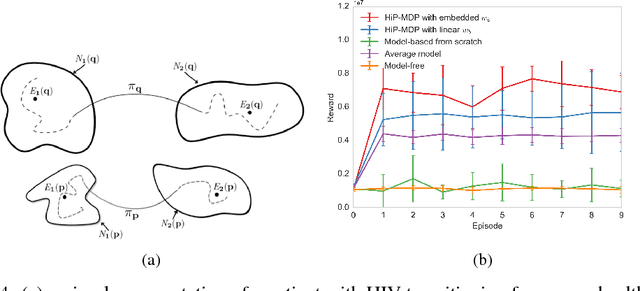
Abstract:We introduce a new formulation of the Hidden Parameter Markov Decision Process (HiP-MDP), a framework for modeling families of related tasks using low-dimensional latent embeddings. Our new framework correctly models the joint uncertainty in the latent parameters and the state space. We also replace the original Gaussian Process-based model with a Bayesian Neural Network, enabling more scalable inference. Thus, we expand the scope of the HiP-MDP to applications with higher dimensions and more complex dynamics.
 Add to Chrome
Add to Chrome Add to Firefox
Add to Firefox Add to Edge
Add to Edge